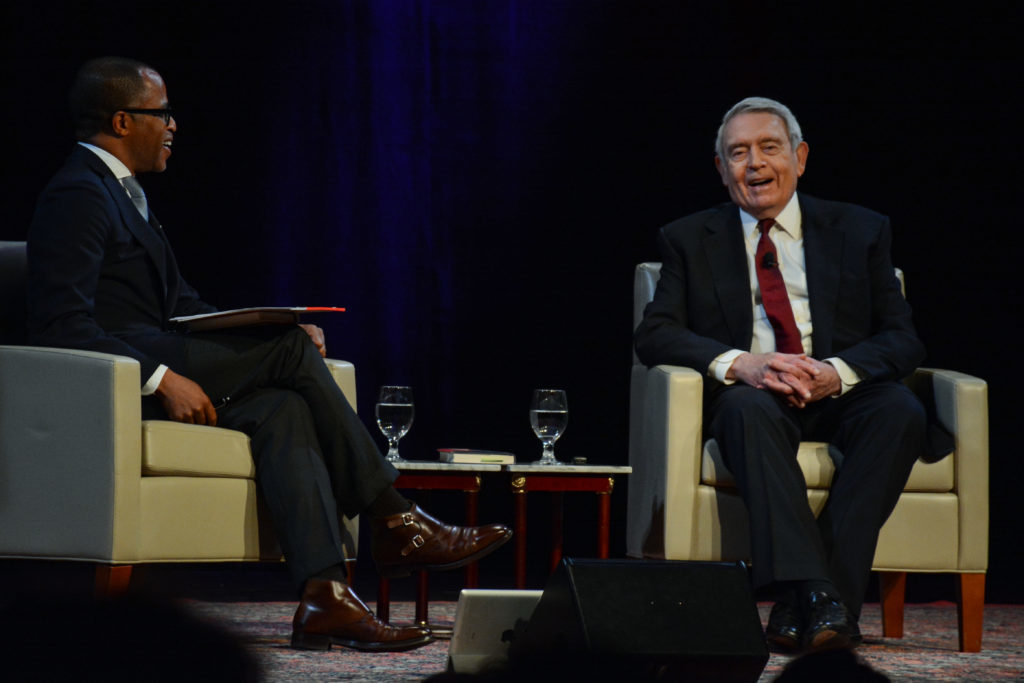GW and D.C. bookstore Politics and Prose hosted former “CBS Evening News” anchor Dan Rather at Lisner Auditorium Thursday to talk about his new book, What Unites Us: Reflections on Patriotism, in a conversation moderated by Pulitzer Prize-winning journalist Jonathan Capehart.
Rather, 86, released the book Tuesday as a collection of stories about patriotism in the United States to understand the current political and cultural divide from a historical context.
Bradley Graham, who co-owns Politics and Prose with his wife, Lissa Muscatine, introduced Rather and Capehart to a packed auditorium of about 1,400 guests.
In a wide-ranging conversation, Capehart and Rather talked about the role of dissent in American culture and the power of literature – all included in chapters within Rather’s book.
Capehart asked Rather about culture wars in the U.S. – including the role of the Black Lives Matter movement and NFL national anthem protests – and asked how individuals should react to dissenters and activists pushing for social change.
“Over time, when justice is on their side, then people come around and say, ‘you know what, the radical of yesterday was the prophet of tomorrow,’” Rather said. “We’ve seen this time and again.”
He added that Americans should be careful not to criticize dissenters, an attitude he said President Donald Trump has not followed.
“The president – and I’m trying to be as respectful of the office of the president as I can – but this effort to shift the public perception of these dissenters as unpatriotic and against the military and against the flag is frankly uncontrollable, and that’s what’s unpatriotic,” he said.
Rather then discussed his favorite chapter of the book: the topic of empathy. Capehart asked Rather to elaborate on the notion in his book that Americans are “hallmarked” empathetic people.
“There’s a difference between compassion and empathy,” he said. “Compassion is ‘I feel sorry for people.’ Empathy is saying – it’s not feeling sorry for people – it’s ‘I understand. And I’m trying really hard to understand what they’re going through.’”
Rather then fielded questions from audience members who asked about major changes in journalism since Rather’s time on air between the 1980s and 2000s, reconciling for “untruthful” government leaders, covering White House press briefings and Rather’s recent road trip with his eldest grandson.
One audience member asked if news organizations should continue to cover White House press briefings if the statements are infused with propaganda.
Rather said journalists should continue to attend because briefings give reporters an opportunity to ask the “tough questions,” which allow them to maneuver through propaganda and determine the real news politicians attempt to cover up.
“One of my favorite definitions of news is ‘news is what the public needs to know that someone somewhere, and usually some powerful person, doesn’t want the public to know,’” Rather said. “That’s news.”





